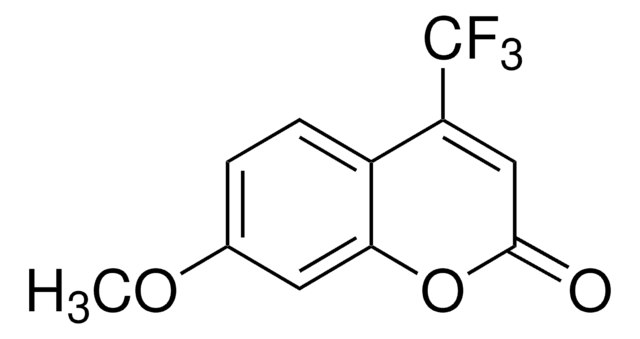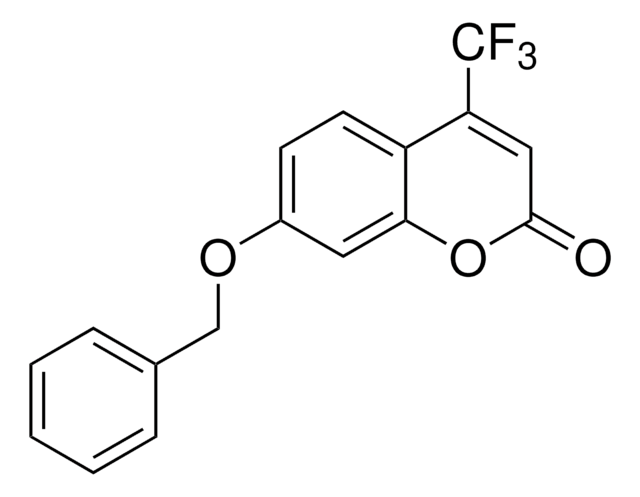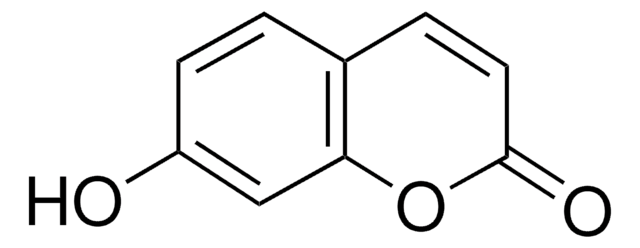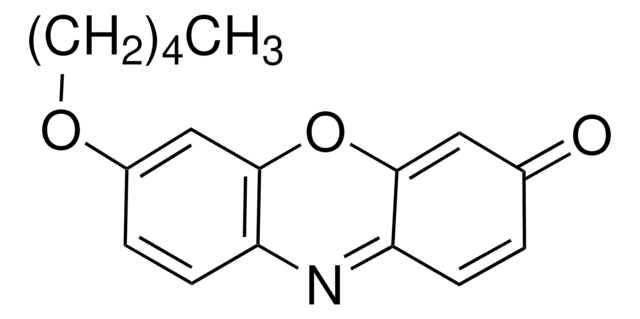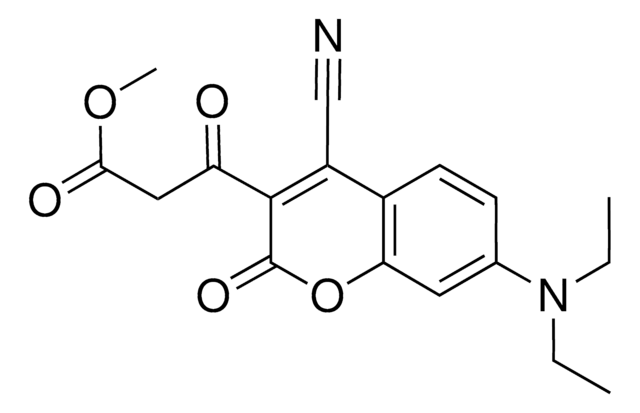T2803
7-Ethoxy-4-(trifluoromethyl)coumarin
≥98% (TLC), powder
Synonym(s):
Ethyl 4-(trifluoromethyl)umbelliferyl ether
About This Item
Recommended Products
Product Name
7-Ethoxy-4-(trifluoromethyl)coumarin, ≥98% (TLC)
Quality Level
Assay
≥98% (TLC)
form
powder
solubility
chloroform: 100 mg/mL, clear, colorless (Soluble in chloroform, methanol, and DMSO.)
fluorescence
λex 333 nm; λem 415 nm in methanol
storage temp.
−20°C
SMILES string
CCOc1ccc2c(OC(=O)C=C2C(F)(F)F)c1
InChI
1S/C12H9F3O3/c1-2-17-7-3-4-8-9(12(13,14)15)6-11(16)18-10(8)5-7/h3-6H,2H2,1H3
InChI key
OLHOIERZAZMHGK-UHFFFAOYSA-N
Looking for similar products? Visit Product Comparison Guide
Features and Benefits
Packaging
Storage Class Code
11 - Combustible Solids
WGK
WGK 3
Flash Point(F)
Not applicable
Flash Point(C)
Not applicable
Personal Protective Equipment
Choose from one of the most recent versions:
Already Own This Product?
Find documentation for the products that you have recently purchased in the Document Library.
Our team of scientists has experience in all areas of research including Life Science, Material Science, Chemical Synthesis, Chromatography, Analytical and many others.
Contact Technical Service